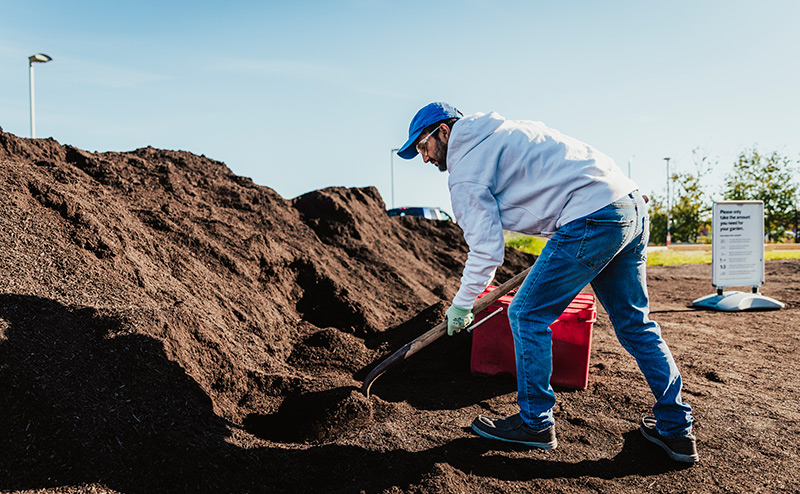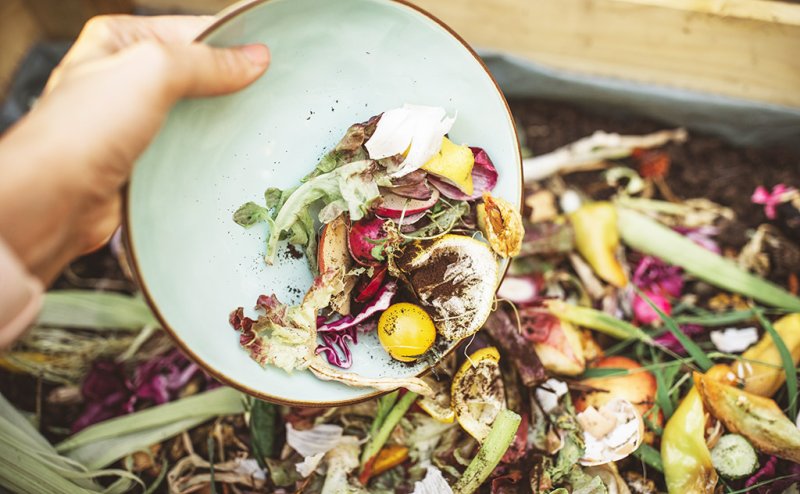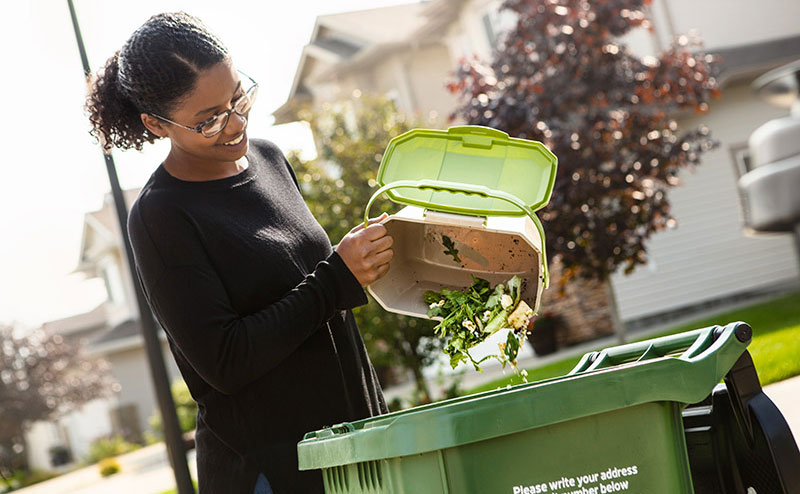
Horticultural compost giveaway is now closed for the season.
Available each spring, the City offers free, high-quality compost rich in organic matter. It enriches plant mixes and enhances the growth of turf, ornamental plants, vegetables and fruit trees.
City of Edmonton Compost is Still Available for Sale
Compost is still available for bulk purchase.
Learn How to Purchase Compost in Bulk
To help keep the waste utility rate low and stable, Waste Services finds ways to use the resources residents dispose of to offset overall costs. This is the case with the City’s compost program - we produce compost from residents’ yard waste to sell to commercial clients, and the revenue generated helps cover some of Waste Services’ overall budget. The compost shared with residents at no additional charge is surplus compost not marked for commercial sale, and is only available while this surplus supply lasts.
Compost Composition
City of Edmonton Compost is made from yard waste dropped off at Eco Stations by residents and collected as part of the residential curbside collections program. This material is composted at the Edmonton Waste Management Centre.
It adds organic matter, nutrients and microbes to soil, balances pH and helps with structure, porosity and moisture retention. It also enriches plant mixes and enhances the growth of turf, ornamental plants, vegetables and fruit trees.
Proper Compost Use
- Use a little, not a lot. Use 1 part compost for every 3 parts soil for best results.
- Mix compost with soil. You should not plant directly into pure compost.
- For topdressing and mulch, spread a thin layer of finished compost on the garden, around plants, or on a lawn. Compost will slowly mix into the soil, adding nutrients for plant roots.
This compost is weed-free. The high temperatures of the composting process kill weeds.
Remember to wear protective gloves and wash hands after use.
How to Compost at Home
Learn the basics of composting at home. You’ll find tips on getting started, maintaining your composter and what materials you can compost.
Home Composting Booklet
A guide to home composting
Worm Composting Booklet
How to compost using worms



